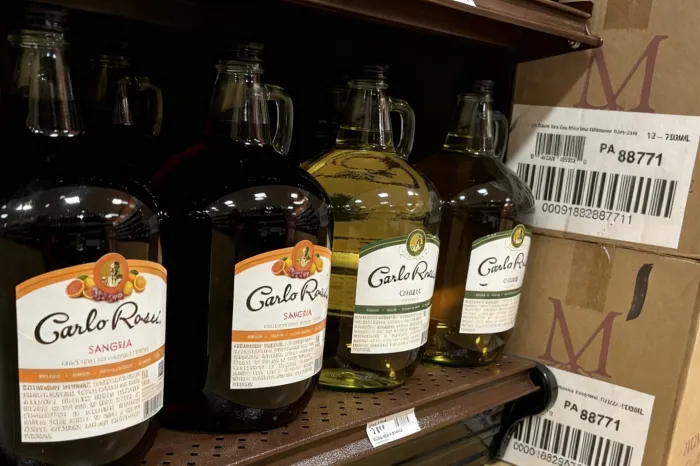A Miraculous Start: Jesus’ Wine Wonders and Party Tricks
If you’ve ever wished you could turn tap water into a decent Pinot on a Friday night, congratulations: you’re not alone. Two thousand years ago, someone had the same dream, and his name was Jesus. The legendary wedding at Cana, described in the Gospel of John, is not just a staple in Sunday School but the origin story of Jesus’ public ministry—launched, as fate would have it, with a party problem: out of wine, out of luck, out of options. No pressure, right? Your first miracle better be a crowd-pleaser—cue transforming water into wine!
Yet, beyond theological debates and endless interpretations, the episode at Cana stands out for its sheer practicality. Why did Jesus choose wine? Why not, say, honey-roasted almonds or a bottomless bowl of hummus? The answer, as one might chuckle, could simply be: no one remembers weddings for their celery sticks. But on a deeper level, the water-to-wine miracle reveals layers of meaning, social flair, and—let’s be honest—a splash of divine showmanship.
Divine Timing and Maternal Intervention: When Moms Take Over Weddings
Let’s set the stage. The ancient world was not known for its free-flowing drink supply, and running out of wine during a wedding was roughly as disastrous as your Spotify playlist pausing in the middle of the first dance. Enter Mary, Jesus’ mother, who sidled up to her son and delivered the timeless line: “They have no wine.” The Gospel makes it clear—Mary’s subtle nudge was the catalyst that set Jesus into action. Jesus’ response, meanwhile, is poetically cryptic: “Woman, what does this have to do with me? My hour has not yet come.” But as anyone with a persistent mother knows, when your mom asks you to do something at a party, your hour has come, whether you like it or not.
So Jesus instructs the servants to fill the jars with water; moments later, the party is awash with superior wine. We learn two eternal truths: never underestimate a mother’s ability to solve household (or wedding) crises, and never bet against a son who can outdo every winemaker from Jerusalem to Carlo Rossi’s basement rack.
Theological Happy Hour: Wine, Symbolism, and Why Grapes Got the Glory
Turning water into wine isn’t just the ultimate party trick—it’s a theological statement. Wine in biblical times was much more than a beverage; it was a symbol of joy, blessing, and the fullness of life. Jesus’ choice to deliver wine—rather than, say, budget sangria that costs less than Pine Market’s bottled water—was a bold claim: the arrival of divine abundance in a world often stuck with spiritual dryness.
Unlike today’s bottom-shelf drinkers who debate whether their jug is “too fruity” or “alarmingly grape-ambiguous,” the guests at Cana were unanimous: this wine was first-rate. The chief steward marveled, “Everyone serves the good wine first, but you have kept the best until now!” It’s as if Jesus invented the reverse-psychology happy hour, saving the top-shelf goods for the marathon end. Carlo Rossi’s devotees may love their 4-liter economic miracles, but Cana’s crowd scored a wine so divine it required no fruit thrown in—no offense, sangria fans.
From a theological perspective, the miracle points to transformation—not just water into wine, but the ordinary into the extraordinary. It’s a preview of what his ministry will do: turning everyday lives into celebrations, serving joy where loss is felt, and offering spiritual “refills” when the human heart runs dry. The miracle arguably foreshadows the Eucharist, where wine symbolizes Jesus’ blood and the new covenant—making that first party miracle a taste test for greater mysteries to follow.
Was It Just Good Hospitality… or Something More?
Practical readers might note that running out of wine at a big event is hardly miraculous territory—it’s just bad planning. Perhaps, in a tongue-in-cheek way, Jesus’ first miracle highlights the necessity of good hospitality. After all, the best hosts make sure the glasses never run dry, and Jesus set the standard—a lesson relevant to every future wedding planner and enthusiastic but hopelessly broke college student stocking Carlo Rossi.
On another level, the story confirms that the divine can attend to the everyday joys and embarrassments of life. If God cares about keeping the party going, maybe there’s hope even for your weekly trivia night. And if you find yourself, like the guests at Cana, surprised by a sudden improvement in beverage quality, it might just be a sign that the ordinary can be infused with the miraculous—sometimes right when you least expect it.
The Continuing Legacy: Grapes, Faith, and Bottom-Shelf Wisdom
Jesus’ water-to-wine feat kicked off a career that would redefine joy, compassion, and presence. But there’s still humor to be found: the party at Cana had no knowledge of Carlo Rossi, boxed wine, or the modern miracle of cheap sangria. Today, we laugh at the idea that anyone, let alone a divine miracle-worker, could produce wine cheaper than actual water—unless, of course, you count college economics and the ingenuity of bulk retail.
And still, the symbolism endures. As one modern wine reviewer joked, “In this economy, not even Jesus could deliver a miracle like that.” Yet, in another sense, Jesus’ first miracle was precisely to deliver joy, generosity, and abundance to people who hadn’t even planned for it—a reminder that sometimes, the best gifts come when expectations are lowest and spirits need a lift.
What does this story mean for us now? Perhaps it’s to remember that parties, weddings, and wine (or even a good cup of water) can all become settings for grace—if we keep eyes open for moments of transformation. So next time you’re cleaning out the cupboard under your sink, maybe check for signs of the miraculous… and if you find a jug that refills itself, give thanks and invite your mom to the celebration.
Related Readings
- For a delightful, irreverent take on bottom-shelf wine, see: “The insanely cheap, bottom-shelf wine that’s worth all the hype it’ll never get.”
- For rich theological background on Mary’s role as spiritual mother and how ordinary moments hold deep symbolism, see: “Regarding Marian titles: Mother of the Faithful People, not Co-Redemptrix.”





























